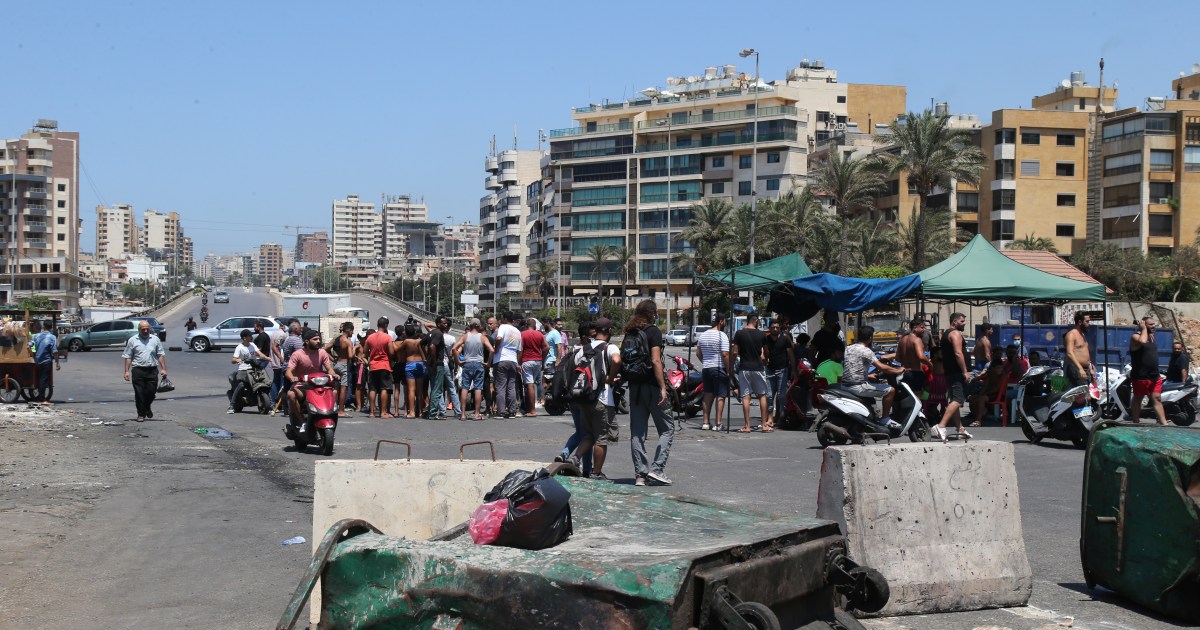Today, Friday, the caretaker Prime Minister of Lebanon, Hassan Diab, rejected President Michel Aoun's invitation to hold an extraordinary meeting of the Council of Ministers to discuss the fuel crisis.
The Media Office of the Presidency of the Council of Ministers said in a statement, “Since the government has resigned since August 10, 2020, and in compliance with the text of Article 64 of the Constitution, which limits the powers of the resigned government in the narrow sense of conducting business, and to prevent any confusion, the caretaker Prime Minister, Dr. He remains on his initial position not to violate the constitution, and therefore not to invite the Council of Ministers to a meeting.
Earlier today, President Aoun called the Cabinet to convene exceptionally, to address the causes of the fuel crisis, according to a statement by the Lebanese presidency.
Aoun said that the Governor of the Banque du Liban, Riad Salameh, "is still insisting on his position to lift the subsidy, despite the laws and decisions that enable him to reverse his decision."
On Wednesday, the Central Bank announced that it would completely stop subsidizing the import of fuel, and said that it would start from Thursday securing the necessary credits for importing it according to the dollar price in the market, instead of the price set officially, in light of a sharp decline in foreign exchange reserves.
The dollar is spent on the parallel market at about 20 thousand pounds, compared to 1510 pounds at the official rate.
street rage
Immediately after the announcement of the lifting of subsidies, the Lebanese street erupted in anger, and protesters closed several main roads, from north to south.
For its part, the caretaker government announced its rejection of the Central Bank's decision, saying that it was in violation of the law issued by Parliament, and contrary to government policy.
After a small emergency meeting held yesterday, the government said that it concluded the need to continue supporting fuel imports and to start rationalizing it as soon as the financing card for the poorest families is put into practice.
The parliament had agreed last June to distribute prepaid financing cards to the poor before taking any other step to lift or reduce subsidies on any basic commodities.
For his part, the head of the General Labor Confederation in Lebanon, Bechara Al-Asmar, said that his country has entered a stage of rapid economic and social decline, and considered that this portends "a social explosion and complete chaos, in light of a comprehensive collapse at all levels."
In an interview with Anadolu Agency, Al-Asmar, who heads a federation of dozens of trade unions and professions, warned of a catastrophe that would befall most of the Lebanese people because of the cessation of support for the import of basic commodities such as fuel and medicine, without providing living alternatives for citizens.
He said that stopping the support "is supposed to be matched by a financing card, but it is not available yet, despite its approval in the House of Representatives."
Because of political differences, Lebanon has been unable for nearly a year to form a government that would put an end to the economic collapse, and the current caretaker government, which resigned 6 days after the disaster of the Beirut Port explosion on August 4, 2020, which led to the deaths of more than 200 people and the injury of about 7,000, has failed. others.

